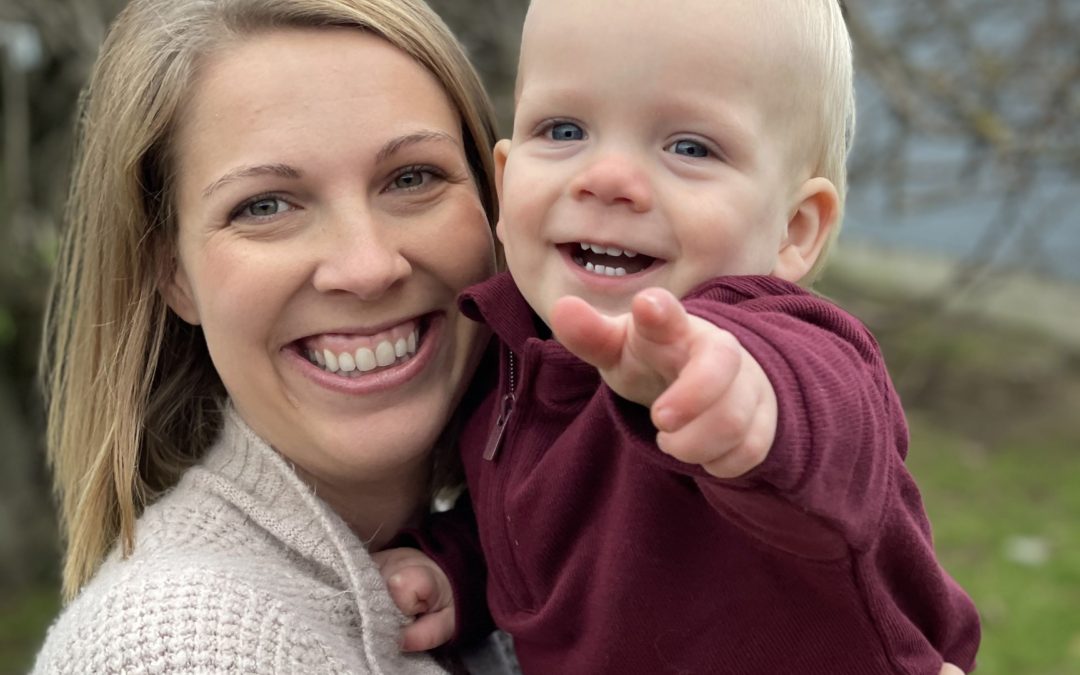The COVID-19 pandemic has significantly impacted the school system as teachers learn to provide education virtually, students adapt to an online environment, and families balance working and learning all within the same home. It is easy to forget that school systems offer far more than just an education; they provide meals, childcare, transportation, supplies, peer interaction, and a network of support staff. As a Speech Language Pathologist for Tillamook County’s Early Intervention program, Kaylie Seymour provides support and guidance to families with children who need extra help learning to communicate, specifically those ages 0 – 3 with speech delays, communication disorders, autism or down syndrome, or who are nonverbal. Like many of those within school systems, the transition to virtual work was not easy as some families are uninterested or unable to meet virtually. Yet, there has been a silver lining with families who have been able to meet through Zoom: the removal of travel time between households has freed up more space in Kaylie’s schedule so that she can meet with families more frequently. This increase in interaction time, even if virtual, has led to stronger emotional connections being built with families in the community – something that is much needed in today’s world.
Although Kaylie has been able to support families more frequently through working virtually, the adjustment has also come with its own personal challenges. When the stay-at-home orders were set in March, Kaylie had just returned to her relatively new position within Early Intervention after taking maternity leave. This meant she was still learning to navigate the policies and procedures of the organization as she was also transitioning to working from home and caring for a new baby. When work and home become the same environment, it is challenging to draw a line between the two. As Kaylie pointed out in the balance of work and caregiving for her son: “You’re working and thinking of him or playing with him and thinking of work. I really had to sit down and decide to carve out family time where I wouldn’t check my phone or email.” It can be extremely difficult to set boundaries within any aspect of life, but COVID-19 has created even greater challenges. Kaylie and her family of 3 have maintained a tight bubble, and they have been hesitant to physically spend time with extended family members who have not taken as many precautions. Within these circumstances, Kaylie has felt torn: “Either I feel guilty that I’ve broken our close-knit family COVID-19 rules or I feel guilty for not letting my parents see their grandson.” As the holidays are upon us, these are the feelings that many of us are grappling with as we try to prioritize the safety of our families while also not losing those crucial connections.
Within this socially-distanced world, communication is a vital aspect of well-being. Kaylie relies on video calls with extended family and regular check-in text messages from close friends as a method for making it through each day. She also points out that navigating parenting in a pandemic is a new challenge in itself, and acknowledging and communicating stress limits is a form of self-care. More recently, Kaylie and her family have been trying to recreate favorite activities from before the onset of COVID-19. For example, planning a craft night with friends over Zoom where everyone gathers supplies ahead of time to work on the same project together, or recreating a movie theater by making buttery popcorn, dimming the lights, and turning off cell phones. These last few months have been challenging as we adapt to a virtual world and learn to set healthy boundaries, but a little creativity with the help of a few loved ones has the potential to go a long way in finding moments of joy.
AUTHOR: Ariel Slifka, Tillamook County Wellness AmeriCorps VISTA
For more local health and wellness information, follow Tillamook County Wellness on Facebook, Instagram and Twitter.

